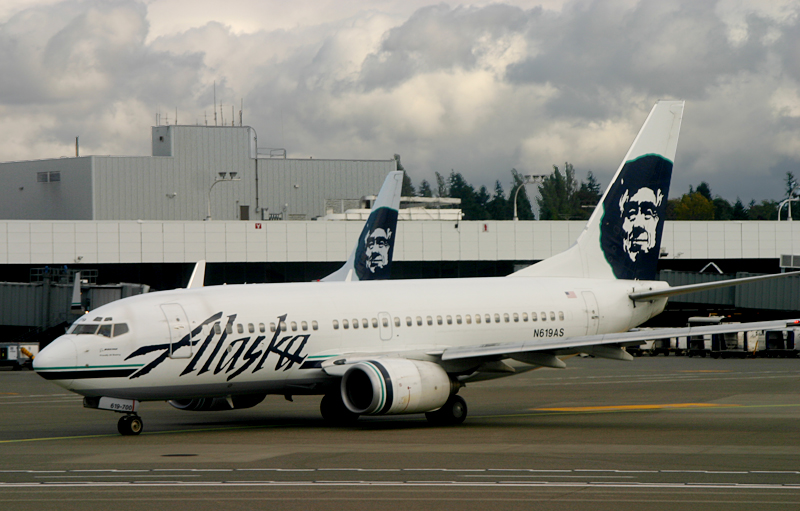Citing that black female pilots comprise of only one half of one percent of all professional pilots in the commercial aviation industry, Alaska Airlines has pledged to hire more of them by the year 2025.
Alaska Airlines Pledges to Hire More Black Female Pilots by 2025
In an effort to address the lack of diversity of pilots in aviation and “support the path to expose and inspire more young women to” become pilots, a new pledge between Alaska Airlines and Sisters of the Skies — which is a nonprofit organization committed to pilot diversity — aims to increase its count of “female African American pilots over the next six years across Alaska Airlines and Horizon Air” from the four currently employed by the airlines.
“Unfortunately, there isn’t a pool of qualified African American women ready to be hired. And creating this pool takes time”, according to this article which was posted at the official weblog of Alaska Airlines. “With a commercial pilot shortage, it’s imperative we cultivate talent in our communities. And regardless of a shortage, it is important to build a workforce of incredible opportunity that is accessible to all.”
The article continues with “The Sisters of the Skies approach to promoting pilot diversity — supporting current pilots through mentorship and encouragement, and increasing the number of future pilots with models and mentors, exposure and training — is consistent with how Alaska approaches creating opportunity.”
Taken verbatim from the aforementioned article, Alaska Airlines will honor its pledge by:
- Having support mechanisms in place to assist in the retention and promotion of existing African American female pilots currently working on mainline aircraft in either pilot seat.
- Enhancing processes and programs that provide education, mentorship, training and scholarships to developing African American female pilots from non-certificated pilots to Airline Transport Pilot (ATP)-certificated pilots through programs such as Solo Flight Academy and Girls Rock Wings.
- Connecting with kids to generate excitement in aviation and models in our own pilots, through efforts like Alaska Airlines Aviation Day, the Michael P. Anderson program and Amelia’s Club.
Summary
Although I would certainly encourage anyone of any race, gender, religion, age, sexual orientation and other attributes to become a pilot for a commercial airline — if that is indeed his or her dream and passion and if he or she works hard to meet all of the strict qualifications — I oppose the idea of any company or governmental organization placing priority to any of those attributes as a deliberate part of the hiring process when considering candidates, as I believe doing so is equally as discriminatory as refusing to consider hiring anyone based on those same factors.
Part of the problem is stereotype when people initially envision a pilot. Virtually every movie, commercial and television series depicts a commercial airline pilot as a white male who is between 45 and 65 years old with “salt-and-pepper” hair. Using the classic movie Airplane as an example, Robert Hays, Lloyd Bridges, Peter Graves and Robert Stack were all cast as pilots and former pilots — not Diahann Carroll, Barbara McNair, Eartha Kitt or Nichelle Nichols.
Few professions can get away with hiring based on the aforementioned attributes. As an actor part time, for example, I know I would obviously never be cast in a movie for the role of Martin Luther King, Junior — and rightfully so — but I was cast as a white African fiancé in a short film called But Mamah, and that was fun.
Organizations such as Sisters of the Skies should absolutely encourage black women to become pilots — but what about potential candidates who are Hispanic, Indian, Asian, or gay, Lesbian and transgender? Should they not be encouraged as well?
In my opinion, the hiring process for commercial aviation — as well as many other professions, for that matter — should be blind to skin color and other attributes and concentrate squarely on such factors as education, knowledge, experience, personality traits and passion. I know that I would want to be hired based on those factors and what I bring to the position — and not based on the color of my skin, my religion, my age or my gender.
In other words, true diversity should occur organically through training and encouragement — but not be forced.
Photograph ©2013 by Brian Cohen.
